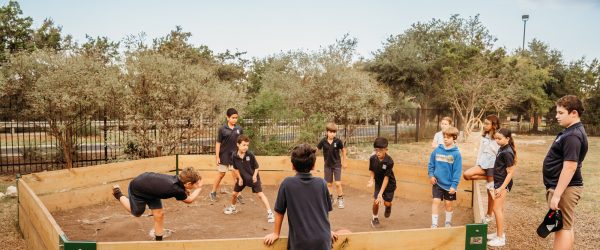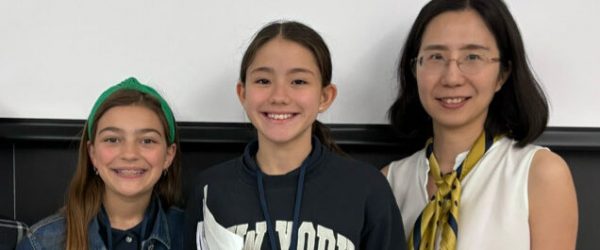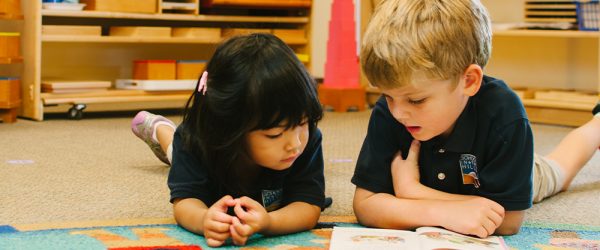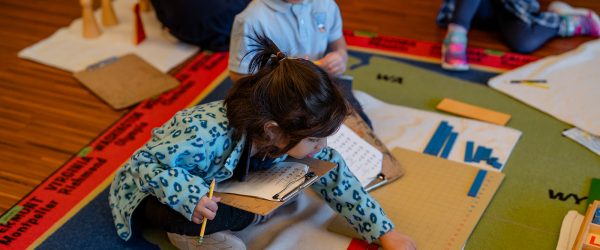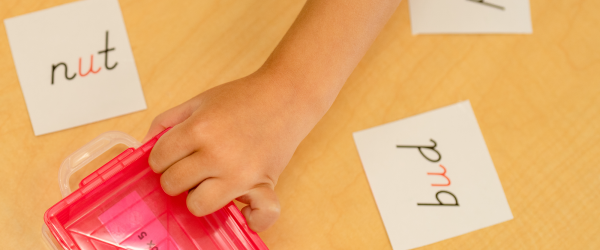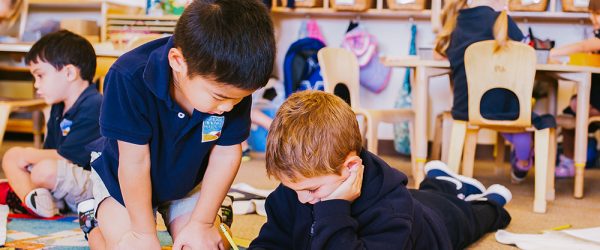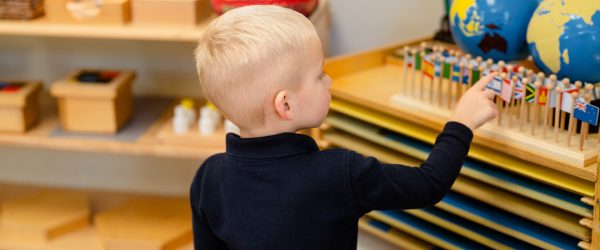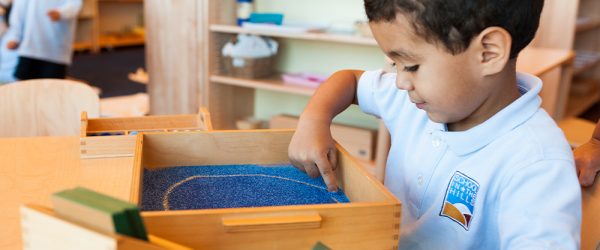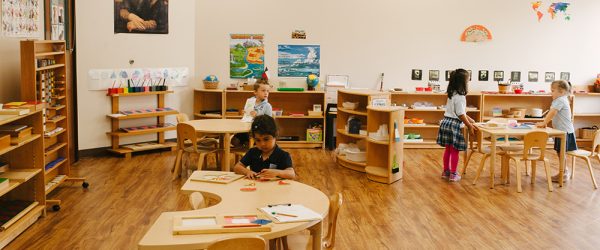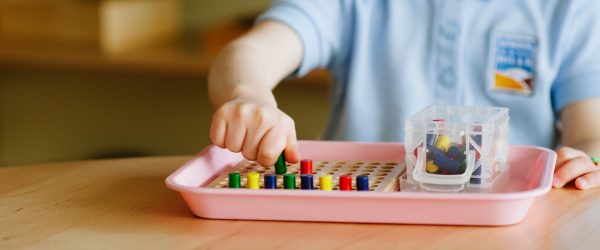Through her scientific research, Maria Montessori broke up human development into four stages. These stages of development define a child’s sensitivity to particular information and provide a unique window into their ability to absorb knowledge. Within the first plane of development (birth to age 6), a child gains physical and biological independence and builds their personality.
It is around age five that most children can enter kindergarten in a public school setting, a year before their first plane of development ends and before their personality is fully developed.
For many families, the transition from Montessori to public school seems definitive. And yet, this is the very time when children need to round out the first stage of development and complete their third year in their primary classroom—the crucial conclusion to building their personality. To do otherwise is to negatively impact the emotional transition from the first plane of development to the second and cut the child’s Montessori Cycle short.
So, what is the three-year Montessori Cycle?
The Montessori cycle is a classroom designed with multi-age groups in three-year processes. Multi-age class grouping provides a framework for collaborative learning, which further embeds a child’s understanding of the curriculum.
The Montessori Cycle provides a community feel rather than just a peer and teacher environment. The comfort of staying with one teacher and classroom allows for the development of stronger teacher-student relationships while at the same time building leaders who strive to be role models and younger students who look to these leaders for confidence and guidance. The result is a well-functioning classroom community.
To underestimate the importance of the Kinder year as a leader is to deny our children the opportunity to fulfill the role they have seen many students step into. Becoming a leader within their classroom is a precious lesson children will carry into society, providing them with an invaluable address in leadership. Each time a child goes through the three-year cycle in a Montessori classroom, they learn that with hard work and perseverance and by learning from more experienced mentors, they can rise into the role of leader and expert.
A recipe for success
The beauty of this three-year cycle is that it allows a healthy social-emotional environment beyond its academic function. The true importance of Montessori Kindergarten is the building of the whole child. Their sense of self, confidence, and leadership skills develop immensely during the third year.
The emotional relationships within Kindergarten build a consistent backdrop filled with support rather than black and white direction. The environment evolves a sense of worth, security, and a means of emotional expression through individualized educational guidance rather than dictation without an understanding of development and the uniqueness of each child’s path.
Montessori is about a community and learning through hands-on manipulation of specifically designed materials. These materials spiral a more complex curriculum that molds and bends with your child, a concept they’ve grown to understand and one that will not be waiting for them in public schools.
Wrapping up
Kindergarten should be the year of rounding out an education, not one of profound change and destabilization. Traditional educational settings are not conducive to the emotional stability and hands-on educational approach your child has come to thrive in.
While many families may come up against financial reasons for the transition into a public school setting, if you can stay, let your child’s educational conclusion of their three-year cycle be an earned representation of everything they have worked for.
